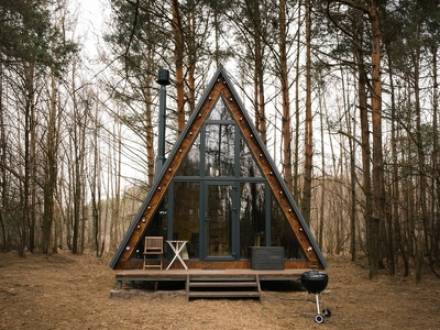Child Custody for Non-Traditional Living Arrangements
 Families today come in all shapes and sizes. Some parents live in tiny houses, travel internationally for work, or share a home with grandparents. These non-traditional living arrangements can be rewarding for children in many ways, but they can also complicate child custody decisions when parents get divorced.
Families today come in all shapes and sizes. Some parents live in tiny houses, travel internationally for work, or share a home with grandparents. These non-traditional living arrangements can be rewarding for children in many ways, but they can also complicate child custody decisions when parents get divorced.
If you are a parent navigating a divorce or custody case in Illinois, it is important to understand how your family’s lifestyle may affect your child’s custody case. Our Wheaton child custody lawyer can help.
How Do Non-Traditional Living Arrangements Affect Custody?
In Illinois, child custody decisions are based on the best interests of the child (750 ILCS 5/602.7). The court considers many things when deciding what the child’s needs are, including stability. Non-traditional living arrangements may raise questions about stability and routine. However, they do not automatically prevent a parent from obtaining custody or visitation.
For example, parents living in a tiny house may face questions about whether the space is big enough for the child’s daily activities and privacy. Parents who travel frequently may need to show that the child will still be able to see both parents. Living with grandparents or other relatives may require parents to show how parental authority is balanced with other adults in the house.
Factors Courts Consider When Making Custody Arrangements
Courts want to see parents make a parenting plan whenever possible, without court interference. This is especially important when parents want to continue living a non-traditional lifestyle. This is not always possible, though. Sometimes parents cannot get along or there are questions about abuse or neglect. In these cases, courts can get involved and make a parenting plan for a child.
When making custody arrangements, Illinois courts look at:
-
The child’s overall stability and security. Courts want to ensure the child has a safe place to live and a predictable routine.
-
The parent’s ability to provide care despite unconventional living situations. This includes access to school, healthcare, and extracurricular activities.
-
The role of extended family or household members in caregiving. While grandparents and relatives can provide support, the court will want to know whether their involvement is good for the child.
-
The child’s emotional well-being. A court may ask whether frequent moves, limited space, or extended travel could negatively affect the child’s development.
-
Both parents’ commitment to co-parenting. Even in non-traditional situations, courts want to see parents who can work together to prioritize the child.
Contact a DuPage County, IL Child Custody Lawyer Today, No Matter Your Living Situation
Figuring out child custody when your living arrangements are unconventional can be tricky, but you have options. At Fawell & Fawell, our Wheaton child custody attorney understands the nuances of non-traditional family lifestyles. We work with parents to demonstrate stability and prioritize the best interests of their children.
Call us at 630-871-2400 to schedule your free consultation. Your family’s well-being is our priority, and we will help guide you through the legal process with care.

 630-871-2400
630-871-2400









